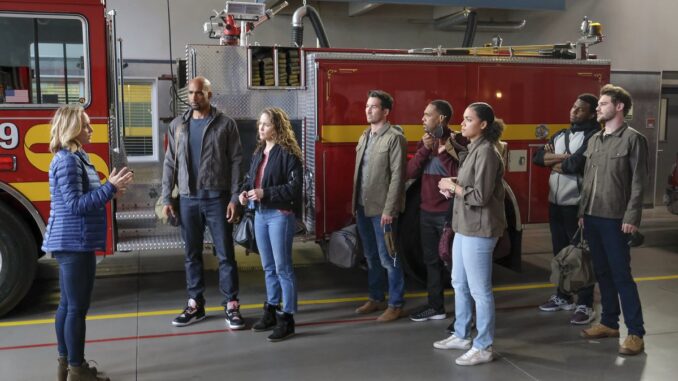
The flickering blue light of the ambulance, the searing heat of a structural fire, the quiet intensity of a rescue call – Station 19 has always excelled at portraying the high-stakes world of Seattle’s bravest. Yet, beyond the thrilling emergencies, the show truly distinguishes itself through its intricate character development. Season 4, in particular, stands as a masterclass in this balance, delivering a relentless barrage of shocking twists that not only captivated audiences but also served as the crucibles for profound and authentic character growth among its beloved ensemble.
One of the most devastating and far-reaching twists of Season 4 was the tragic death of Dr. Andrew DeLuca, an event that rippled across both Station 19 and its parent show, Grey's Anatomy. For the firefighters, especially Vic Hughes and Carina DeLuca, Andrew's demise was a gut punch, a stark reminder of the fragile line between life and death that even their closest allies walk. This unforeseen tragedy became a catalyst for immense growth. Carina, already navigating life in a new country and a blossoming relationship, was forced to confront unimaginable grief, showcasing her immense resilience and vulnerability. Her steadfast determination to continue Andrew's fight for justice, even amidst her sorrow, highlighted a deep strength previously only hinted at. For Vic, DeLuca's death amplified her already strong commitment to mental health advocacy, pushing her Crisis One initiative to the forefront and solidifying her role as the team's emotional anchor and an increasingly empathetic leader.
Beyond the external shocks, Season 4 also wove intricate personal twists that became crucible moments for individual characters. Robert Sullivan’s journey, for instance, took a shocking detour into opioid addiction and recovery. Stripped of his rank and authority, his once-rigid facade crumbled, revealing a man grappling with deep-seated pain and a desperate need for redemption. His eventual, painstaking return to the firehouse, not as a chief but as a firefighter dedicated to earning his place back, was a testament to humility and an honest confrontation of his own fallibility. This arc wasn't just a plot twist; it was a profound exploration of identity stripped bare, forcing Sullivan to grow beyond his former self, finding strength not in command but in vulnerability and community support.
Similarly, Maya Bishop’s tenure as captain was a relentless series of professional and personal challenges, a twist in itself that her ruthless ambition had finally caught up with her. The constant threat of demotion and the immense pressure to prove herself forced Maya to re-evaluate her leadership style. She learned that true authority isn't just about barking orders, but about fostering trust, admitting mistakes, and sometimes, putting the well-being of her team above personal glory. Her relationship with Carina also deepened profoundly, as Maya began to drop her guarded facade, leaning into emotional intimacy and revealing a softer, more human side previously hidden by her competitive drive. This growth transformed her from a talented but rigid leader into a more compassionate and effective one, ready to face the complexities of life beyond the firehouse.
The season also quietly fostered deep, organic growth across the ensemble, often triggered by smaller, more intimate twists. Dean Miller, grappling with his unrequited love for Vic, experienced a significant emotional maturation. His confession, though initially a twist for Vic, ultimately pushed him to confront his feelings and solidify his commitment to his daughter and the broader community through Crisis One, showcasing a burgeoning emotional honesty and maturity. Andy Herrera, navigating a complex and often tempestuous marriage to Sullivan, was forced to confront her own identity outside the shadow of her father and her husband. Her struggle to find her voice, both as a wife and a leader, was a nuanced portrayal of personal evolution, moving her beyond the "girl next door" archetype into a woman grappling with the messy realities of adult relationships and evolving ambitions.
Ultimately, Station 19 Season 4 transcended the typical procedural drama by using shocking twists not as mere plot devices, but as profound catalysts for character evolution. From the devastating loss of Andrew DeLuca to the personal battles fought within the confines of Station 19, each unforeseen event stripped away layers of pretense, forcing characters to confront their deepest fears, vulnerabilities, and aspirations. The result was a season that felt intensely human, demonstrating that true heroism often lies not just in fighting fires, but in the courageous act of self-discovery and growth amidst life’s most unexpected and challenging turns.